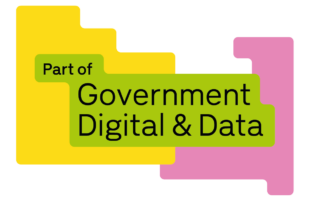
Annie Lewis

Emma Baird

Introduction
Understanding the importance of ethics is essential, as discussed in our previous blog. Equally important is ensuring that these ethical principles are applied in practice, to protect and respect participants throughout the entire research process. User research sessions are an invaluable tool for understanding the needs, behaviours, and experiences of participants.
Imagine the Business Growth Service Team from the Department for Business and Trade (DBT) running a session where business owners, both new and experienced, get to try out concepts of the new business.gov.uk service. Participants are guided through specific tasks, such as navigating support resources or applying for business guidance, while researchers watch how they use the site and listen to their thoughts. All that feedback helps improve the site, making it simpler for everyone to get the advice and support they need to start and grow their business.
It’s important to observe these sessions responsibly to maintain the integrity of the research, ensure participants feel comfortable, and build a foundation of trust and respect.
This blog outlines the ethical principles that underpin good observation practice, and how we apply them at DBT.
Respect - for participants and for the research process
Respect means recognising the dignity, autonomy, and comfort of those taking part in research, while also valuing the integrity of the methods used. It involves being mindful of participants’ needs, ensuring they feel safe and heard, and supporting researchers in creating a space where honest, unbiased insights can emerge. At DBT, we ask observers to apply this principle by:
- checking in with the researcher to understand any participant needs or preferences. This helps ensure everyone feels comfortable and included
- asking how best to take notes or ask questions. Different researchers may have different approaches, and this will make the analysis easier later on
- understanding that some sessions may not be suitable for observation – especially if the topic is sensitive. The participant may also not want to be observed. Research with participants who work in the same organisation as you can also be more sensitive, because they are easier to identify and may feel uncomfortable speaking openly in front of other colleagues. In these cases, the researcher’s decision to limit observers is about protecting the participant’s wellbeing
Informed consent
Informed consent means ensuring that participants are fully aware of and comfortable with the research setup, and that their autonomy is respected throughout. So at DBT, we ask observers to:
- understand when and how to join the research session, whether remote or in person. It’s important that the participant can have a conversation with the researcher about the research beforehand , to check that they understand and are happy to be there. Each researcher may have different preferences for how they handle this before you join. For instance, in remote research there may be a lobby you can wait in, or your researcher may tell you not to expect to join for the first 5 minutes or so
- remember that if the researcher asks you to leave, it’s likely to help the participant feel more at ease. This is part of creating a safe space
- accept it if the research session ends for any reason. Participants can change their mind at any point, even right in the middle of the session, or after, without having to explain why. It’s important to respect whatever they decide
Non-interference
Non-interference means avoiding influencing the session in any way – whether through how we behave, suggestions we make, or sometimes even just by being noticed. This means that participants’ responses remain authentic and the research findings stay valid. At DBT, we ask observers to follow this principle by remembering to:
- keep cameras and microphones off during remote sessions, and stay out of sight and quiet during in-person sessions
- respect the limit on the number of observers to avoid overwhelming the participant. We typically allow a maximum of 2-3 people to observe, unless there’s an ‘observation room’
- stay quiet even if the participant doesn’t know what to do next in their task. Do not tell them what to do. It’s more important to learn that something’s not intuitive to them (although it’s okay to give them some pointers when the research has finished, if they ask for advice)
Objectivity and contributing to analysis
Objectivity means capturing what participants say and do without adding personal interpretations or assumptions. It involves observing with care, noting facts accurately, and avoiding language or behaviour that could misrepresent or influence the participant’s experience. In line with this, observers at DBT are asked to:
- write quotes verbatim, or as close to that as you can
- write things you’ve observed, not things you’re interpreting or guessing about. If you’ve made an interpretation that you really want to make a note of, label it clearly (e.g., 'Observer thinks: ...')
- be aware of your bias and try to remain objective. If you see something that wasn’t what you expected, make a note of it anyway. Remember that if you express surprise during the research, you’re likely to influence how the participant behaves after this
- debrief with the researcher about what you learned. This helps consolidate insights and supports emotional wellbeing if the topic was sensitive
- talk to your colleagues about what you learned and what surprised you. You may have spotted something no-one else noticed, and it’s important that this is heard
Confidentiality
Confidentiality means protecting participants’ personal information and ensuring their identities are not revealed through notes, recordings, or discussions. It involves handling data with care, using pseudonyms or identifiers, and following agreed protocols so that participants feel safe and their privacy is respected throughout the research process. At DBT, we ask observers to:
- do not use names in anything you save. Use pseudonyms or participant IDs to maintain anonymity
- do not make your own audio or video recordings or note down any personal details about the participants
- send your notes to the researcher after the session so they can be stored securely
Summary
Ethical observation is about more than following rules. When you're observing a research session, it's all about being respectful and mindful. Let the researcher lead the way, and avoid side chats with participants that could skew their answers. Security and privacy are key: no personal details, no rogue recordings, and stick to pseudonyms for participants. Observing research sessions ethically isn’t just about rules or ticking boxes; it’s about doing the right thing for the people involved.
To observe ethically is to take responsibility – for how we engage with the research, how we support the researcher, and how we honour the participant’s trust. Begin with respect, act with responsibility and always centre the participant – as their openness is not just data, but a contribution to our understanding. By observing thoughtfully, you help ensure that research remains a safe and valuable space for everyone involved.

